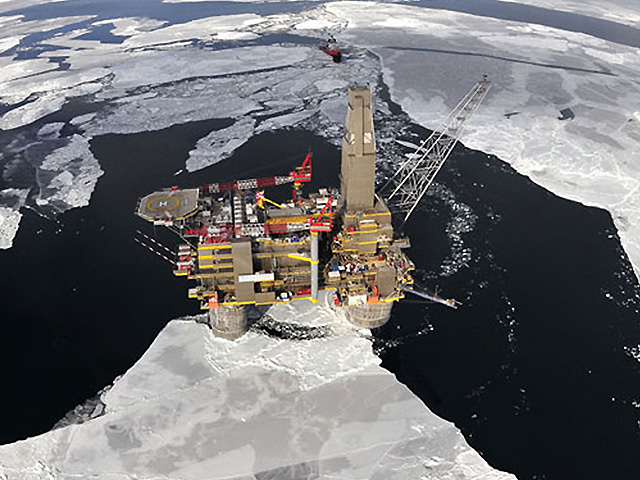
Energy majors continue to offload interests in Russia, with a series of divestment announcements by the likes of Shell, BP and Equinor.
BP announced on Sunday that it would exit its 19.75% holding in state-owned Rosneft, with CEO Bernard Looney and former chief Bob Dudley both resigning from its board, while Equinor announced today that it will begin exiting joint ventures in the country, also ending its co-operation with Rosneft.
Both companies have acted in response to Russia’s military invasion in Ukraine. Equinor chief executive Anders Opedal described the company’s position as “untenable”, while Mr Looney said the actions had promoted the group to “fundamentally rethink BP’s position with Rosneft.”
Attention continues to fall on other major energy investments in the country. Indeed, Shell announced late Monday its intention to exit its joint ventures with Gazprom and related entities.
That includes its 27.5% stake in the Sakhalin-II liquefied natural gas facility, its 50% stake in the Salym Petroleum Development and the Gydan energy venture.
Shell also intends to end its involvement in the Nord Stream 2 pipeline project.
Just as BP currently owns 20% of Rosneft, so Shell has a 27.5% stake in Gazprom’s Sakhalin-2 offshore gas project. Shell should now follow BP and divest their Russian holdings to isolate the Putin regime.
— Ed Miliband (@Ed_Miliband) February 27, 2022
“In the current environment any European or American company with assets in Russia must be considering similar moves,” Eurasia Group analyst Henning Gloystein told Reuters over the weekend.
Meanwhile, TotalEnergies holds a 19.4% stake in publicly listed Novatek, a private company, not state-run, reputedly with close ties to the Kremlin via board member and Putin ally Gennady Timchenko. Novatek is Russia’s second-largest gas producer.
Shares in TotalEnergies are down by 6% since Friday following Putin’s attack on Ukraine.
The supermajor also holds a 20% stake in Yamal LNG, which began producing in December 2017, and a further 10% stake in Arctic LNG 2, currently in development.
The latter is on track to deliver its first LNG cargo in 2023, and will deliver nearly 20 million tonnes per year (tpy) once completed.
In the case of both LNG projects, TotalEnergies is further invested via long-term offtake deals covering 4 million tpy from Yamal and around 2 million tpy from Arctic LNG 2.
The company declined to comment.
However, speaking at International Energy Week last week, CEO Patrick Pouyanne said: “We will listen very carefully to the [Russia] sanctions regime, which we will obey. And we will see the human rights consequences of what happens.”
“We recently took a stance against Myanmar. We exited Myanmar, but people were criticizing us — why didn’t we do it immediately. But you know in life you need to take time [to see] what exactly would happen. I think it is premature to make this type of conclusion.”
President Putin met with Royal Dutch Shell CEO Ben van Beurden. Shell is active in many projects and is a big investor in Russian economy, with over $ 15 bn in direct investment. pic.twitter.com/kZG89YHREE
— Russian Embassy, UK (@RussianEmbassy) July 19, 2019
Shell holds a 27.5% stake in the Sakhalin-2 scheme, operated by state-owned Gazprom. Other stakes are held by Mitsui (12.5%) and Mitsubishi (10%).
Last week Sakhalin Energy, the joint venture company for the site, issued a statement assuring that its assets were operating as usual.
“The company pays special attention to interaction with Sakhalin-2 suppliers, thus ensuring a mutually beneficial dialogue in any situation,” the statement added.
Shell also faces a reported $1bn write off in the event of the cancellation of the Nord Stream 2 pipeline, the certification of which was halted last week by the German government in response to Russia’s actions.
‘Dividend under threat’
The impact of these decisions on energy balance sheets is likely to be significant.
Commenting on BP’s divestment, Panmure Gordon senior research analyst Ashley Kelty noted: “Rosneft accounts for around half of BP’s oil reserves and a third of its production, and BP has suggested that it will take non cash charges of $25bn as a result. Last year Rosneft delivered c.17% of BP total profits and dividends of $640m to BP.”
“However, the real impact will be well above the $25bn already outlined, as we do not believe that BP will be able to recover a fraction of the value that it is currently holding for Rosneft – and that the process of extricating itself will also be tricky.
“While BP says that its short-term financial targets will not be impacted, but we would estimate that the dividend will be under threat over the longer term as higher oil prices will only mitigate some of the impact.”
Recommended for you
